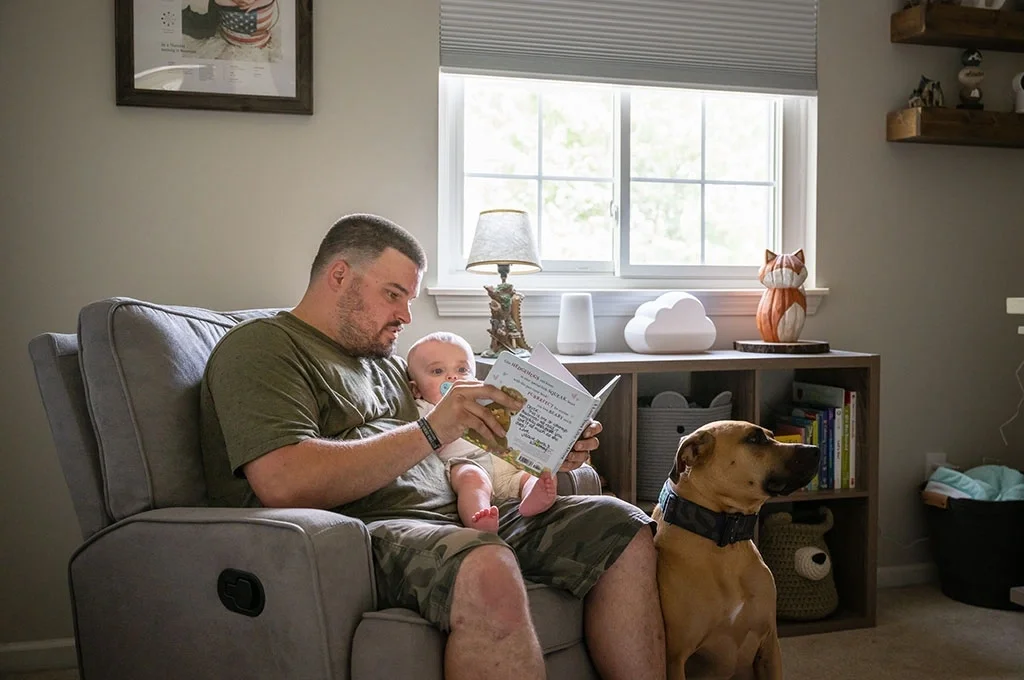
Why is no one talking about Veterans' wealth killer?
I'm not here to give you false hope or sugar-coat the truth. I want to talk about a serious problem that's quietly destroying Veteran families: debt. It hits fast after you leave the military. This isn't meant to scare you—these are the facts, and I'm going to tell them to you straight. If this information helps you or someone you care about, then it's worth your time to keep reading.
Here's what most transition briefings barely mention or rush through: in the first six months after you leave the military, you're 2 to 10 times more likely to miss payments or default on loans compared to your last six months in service. Veterans make up about 15% of all personal bankruptcy filings in the country, but we're only about 6% of the total population. We start a lot of businesses—around 5% of all business owners are Veterans—but Veteran-owned small businesses fail more often than businesses owned by non-Veterans. And on one night in January 2024, about 33,000 Veterans were homeless. That's actually the lowest number on record, which shows we're making progress, but it's still far too many people.
This problem goes way beyond just money. Debt creates stress that spills over into your mental health, your marriage, your job performance, and your housing situation. It makes every decision you face feel much heavier and more difficult.
What this looks like in real life
The pattern we see every month is easy to describe but hard to live through: many of the Veterans who reach out to us earn around $60,000 a year and owe around $20,000 on credit cards and personal loans. That means they owe about 35 cents for every dollar they earn just on credit cards and loans (not counting their mortgage or car payments). For non-Veterans, this number is usually under 25 cents per dollar earned.
When you're at 35%, you're not just "carrying a balance" on your credit cards. You're constantly choosing between fixing your car and making your card payment, between paying for a doctor's visit copay and paying the electric bill. You start thinking the problem is something wrong with your character or willpower. It's not. The problem is math and bad timing, and that timing works against you right after you leave the military.
Why veterans face unique risks
- Going from military structure to handling everything yourself. When you're in uniform, your pay comes in steadily and the military system notices if something's wrong with you. In civilian life, you are the system. Bills, paperwork, and fine print—if you don't catch these things, they'll catch up with you in a bad way.
- Companies specifically target you with expensive credit offers. High-cost credit offers are everywhere you look as a Veteran. We do have legal protections—the Servicemembers Civil Relief Act (SCRA) and the Military Lending Act (MLA)—but most Veterans don't use them properly. If you don't ask for these protections in writing and follow up to make sure they're applied, you might be leaving significant money on the table.
- Financial products are deliberately confusing. Terms like "promotional APR," "origination fee," and "precomputed interest" are designed to make you guess wrong about what you're actually agreeing to pay.
- Life problems tend to happen all at once. Moving to a new city, changing jobs, dealing with medical bills, paying for childcare, starting a business—when two or three of these hit you in the same year, your financial situation can go sideways very quickly.
Let's call this problem what it really is
Debt makes every other problem in your life worse. One missed payment hurts your credit score. A lower credit score means you pay more for car insurance and any future loans you need. Higher costs drain your available cash, which pushes you toward taking on even more debt. Meanwhile, the ad in your social media feed is calling a 29% personal loan a "fresh start." Let me be clear: a 29% personal loan is not a fresh start. It's like tying an anchor around your neck and putting a pretty ribbon on it.
The same problem exists with balance transfer offers. That 4% transfer fee is actually a 4% loan that gets added to your total debt right away. If you understand exactly how these tools work, you might be able to use them effectively. If you don't understand them completely, they will end up using you instead.
Fixing the system — what better would look like
This is my opinion, and I'm going to state it clearly:
Financial education should work like military training, not like a classroom lecture. Teach people the step-by-step process, not random facts: first stabilize your income, then protect your credit file when you move, then track how much you owe on credit cards and loans compared to what you earn, and understand how interest actually grows over time. Do this training before you separate from the military, then review it again at 90 days after separation, then again at six months. Repetition and practice matter.
Make legal protections work automatically instead of making Veterans hunt for them. If Servicemembers Civil Relief Act (SCRA) or Military Lending Act (MLA) rate caps are supposed to apply to your situation, they should apply automatically without you having to go on a treasure hunt to find them. Veterans shouldn't have to fight and argue for benefits that the law already gives them.
Give people useful guidance instead of sales pitches at the right time. A lot of people don't need to buy a financial product; they need a clear roadmap showing them two or three smart moves they can make early on. Put that roadmap in front of people exactly when their risk is highest: during the first six months after they leave the military.
Use honest language instead of marketing speak. Don't dress up high interest rates with fancy words that make them sound good. Say the interest rate out loud. Say the fees out loud. If a financial product doesn't actually lower your total costs or help you pay things off faster, it's not really helping you—it's just delaying your problems.
Why this matters for more than just money
Debt stress doesn't just empty your savings account; it drains your mental energy and willpower. It makes good parents lose their temper more often. It turns small-business owners into exhausted people who can barely think beyond making the next payroll. It isolates people from their friends and family—which is the last thing anyone needs if they're also dealing with PTSD or depression.
When the VA and Department of Defense talk about suicide prevention and list financial problems as a major risk factor, that's not just a theory. That's based on real experience with real people. If you're in a dark place mentally: call 988 and press 1 for the Veterans Crisis Line, or text 838255. Keep that number handy and share it with other people who might need it.
What you can do right now
I'm not a financial adviser, and I'm not trying to sell you anything. I'm just someone who's seen this same story play out too many times. Here's what I'm asking you to do:
Make talking about money problems normal in your social circle. Remove the shame and embarrassment from these conversations.
If you're about to leave the military, put "getting my money situation figured out" on your transition checklist as a top priority, not something you'll deal with later.
If you're already out of the military and you feel like you're drowning financially, tell one person you trust about your situation and ask them to help you get a neutral second opinion on your numbers.
If you run a Veteran Service Organization, add a six-month financial check-in to your transition support programs.
Remember: you are not defined by your account balance, and you are not defined by your credit score. We know how to do difficult, boring things that keep people alive and safe. We can also learn to do the difficult, boring things that keep people financially stable.








